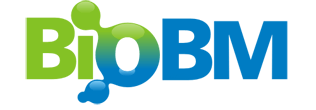 Last week my father, who is a real estate broker and an attorney, was telling me about a real estate deal that he was working on. The buyer and seller had initially been in relatively good agreement but the seller’s attorney continuously advised his client to take an increasingly risk-averse position, thereby making the deal more one-sided and threatening it entirely. This reminded me of another conversation that some of us on the Life Science Distributors group on LinkedIn were discussing: how many large manufacturers (and this applies to large distributors as well) often have heavily one-sided distribution agreements that minimize their risk but fail to consider their partners. It was mentioned that such agreements are often drafted by attorneys.
Last week my father, who is a real estate broker and an attorney, was telling me about a real estate deal that he was working on. The buyer and seller had initially been in relatively good agreement but the seller’s attorney continuously advised his client to take an increasingly risk-averse position, thereby making the deal more one-sided and threatening it entirely. This reminded me of another conversation that some of us on the Life Science Distributors group on LinkedIn were discussing: how many large manufacturers (and this applies to large distributors as well) often have heavily one-sided distribution agreements that minimize their risk but fail to consider their partners. It was mentioned that such agreements are often drafted by attorneys.
My father made a very astute statement: “Attorneys seem to have forgotten the realities of business in favor of minimizing risk for their clients”. While there are exceptions, and there are also certain situations in which extreme caution may be justified, the idea of the statement is too-often true. When attorneys get involved they often do not have a complete understanding of the business environment and / or the situation relevant to a particular business deal. This applies across almost all industries and markets, and life science research tools are no exception.
Whether the issue at hand is distribution agreements, licencing deals, partnerships, service agreements, or just about any other contractual and / or negotiated agreement, remember to take your lawyers advice seriously, but don’t let them overrule the basic rules of business. Almost any deal requires a little bit of give and take, and focusing too strictly on risk reduction can ultimately scuttle what would otherwise be a highly lucrative deal. When your life science company deals with its attorneys, value their advice, but don’t forget the rules of business in doing so.

 Last week, the Supreme Court ruled in the case of Stanford vs. Roche Molecular Systems, which has implications for academic inventors who receive federal funding for their research. Stanford was suing Roche Molecular Systems, claiming saying RMS did not have the rights to a patent which described a test to quantify the HIV load in a patient’s blood, which is now commonly used. RMS had bought the rights from Cetus Corporation, a private company at which a Stanford fellow, Dr. Mark Holodniy, had been assigned by Stanford to conduct research and at which Dr. Holodniy had invented the HIV load test in question.
Last week, the Supreme Court ruled in the case of Stanford vs. Roche Molecular Systems, which has implications for academic inventors who receive federal funding for their research. Stanford was suing Roche Molecular Systems, claiming saying RMS did not have the rights to a patent which described a test to quantify the HIV load in a patient’s blood, which is now commonly used. RMS had bought the rights from Cetus Corporation, a private company at which a Stanford fellow, Dr. Mark Holodniy, had been assigned by Stanford to conduct research and at which Dr. Holodniy had invented the HIV load test in question.